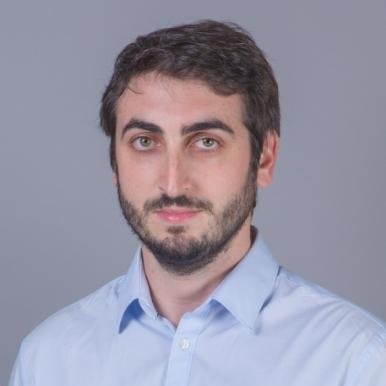Entrepreneur Case Studies
From Hardcore Techie to Successful Entrepreneur: Cybellum CEO Slava Bronfman (Part 2)
Sramana Mitra: You’ve finished this accelerator program and you’ve got some mentors. What was your trajectory? Were you building a product first? Were you talking to customers? Where did the validation of your idea come from?
Slava Bronfman: We were a bit naive. We just started building the product. Our product is very tech-heavy. We were thinking that two guys can just build the product. We understood that it’s not the case. The right thing to do is to build a nice presentation and approach investors. We had a big mission here and we needed a lot of people to build the product.
>>>Bootstrap First, Raise Money Later: Art.com CEO Josh Chodniewicz (Part 1)

Josh bootstrapped for 10 years before raising a $30M first round of funding.
Read on to learn more about his journey.
Sramana Mitra: Let’s start at the very beginning of your journey. Where are you from? Where were you born, raise, and in what kind of background?
>>>From Hardcore Techie to Successful Entrepreneur: Cybellum CEO Slava Bronfman (Part 1)

Slava was a Cyber Security geek in the Israeli military. In this interview, he tells the story of his transition to a successful entrepreneur.
Cybellum has been acquired by LG but continues to operate as an independent business unit subsidiary within the conglomerate. Awesome story with numerous lessons for geeks who aspire to be entrepreneurs.
Sramana Mitra: Let’s start at the very beginning of your journey. Where are you from? Where were you born, raised and in what kind of background?
>>>Israeli Founders Building a FinTech Venture: Omri Dor, Co-Founder and COO of Obligo (Part 6)
Sramana Mitra: Have you done any of these integrations?
Omri Dor: Generally yes.
Sramana Mitra: At what point in your evolution did integration start to happen?
Omri Dor: I would say that’s a part of the never-ending product-market fit search. You start your work in New York. Then you start to leave. What do you find? Larger landlords and property managers use different software that requires integrations. They will say, “I will not work with your product unless you’re fully integrated.” You keep finding these blocks. Do you change your product or go after a different market?
>>>Israeli Founders Building a FinTech Venture: Omri Dor, Co-Founder and COO of Obligo (Part 5)
Sramana Mitra: How does that work out ROI-wise? $3,000 is the security deposit and $10 a month. For how long? Is there a cap?
Omri Dor: We’ve done a lot of experiments since. The price is in the range of 6% to 12% APR on your deposit. If you choose the Obligo service and keep your $3,000 deposit and invest that with something that returns more than 6%, you are making money. Let alone if you have credit card debt. For the renter, there is a value.
>>>From Developer to Successful Machine Learning Entrepreneur: David Moss, Co-Founder, President and CTO of People Power Company (Part 6)
Sramana Mitra: Your Series A was mostly angels?
David Moss: There were some traditional VCs in Series A as well.
Sramana Mitra: What was the size of the Series A?
David Moss: I think it was around $4 million. With Series B, we filled it out with more corporate investors. They also turned into customers.
>>>From Developer to Successful Machine Learning Entrepreneur: David Moss, Co-Founder, President and CTO of People Power Company (Part 5)
David Moss: The third thing we do is we’re bringing people together. If we look at the history of computing, in every era, killer apps would emerge. These apps were killer because they’re viral. They’re viral because they’re social. What’s key is to take the newest technology of the day and find how we can intersect that with elements that are social.
There is nothing more social than taking care of somebody. We are bringing together family caregivers and we are bringing together professional caregivers to provide care. Usually, it’s a primary caregiver who steps up. This person has a lot of stress. What we need to do is distribute that stress to the rest of the family and provide them with a better lifestyle.
>>>Israeli Founders Building a FinTech Venture: Omri Dor, Co-Founder and COO of Obligo (Part 4)
Sramana Mitra: What about customers? Did you have customers?
Omri Dor: That was the straw that broke the camel’s back. Roey and I did a couple of trips to London. We went there and were going door-to-door to residential brokers. We would walk in and show them the demo and a video. It was an explainer video. We would walk door-to-door getting them to sign letters of intent. I believe we got zero.
>>>